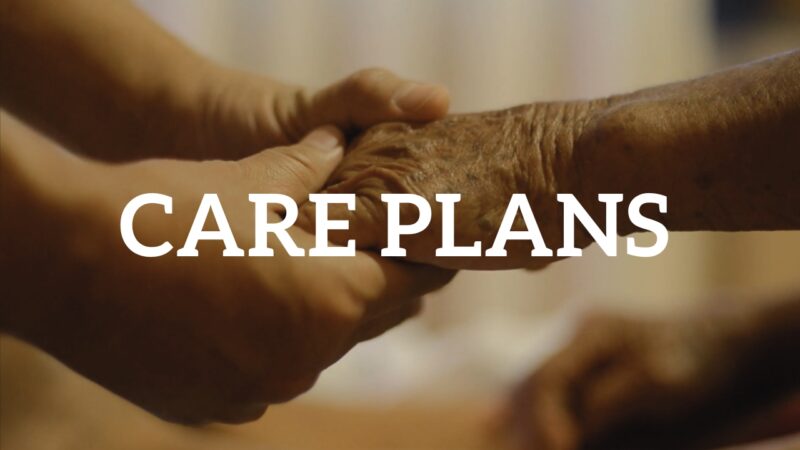Community Support Workers (CSWs) are the unsung heroes of our communities, providing essential support to those who need it most. They play a pivotal role in fostering community well-being, ensuring that every individual, regardless of their circumstances, has the opportunity to live a fulfilling and dignified life.
The role of a CSW is multifaceted, encompassing a wide range of responsibilities that cater to the diverse needs of their clients.
From assisting with daily living activities to providing emotional support, advocating for clients’ rights, and facilitating access to community resources, CSWs are instrumental in empowering individuals to overcome challenges and thrive within their communities.
I believe it’s highly important for all of us to be familiar with their diverse responsibilities, the skills they employ, and the profound impact they have on the lives of the individuals they support.
The Role of a Community Support Worker
A Community Support Worker (CSW) is a professional who provides assistance and support to individuals facing various challenges, including physical disabilities, mental health issues, and social disadvantages.
They work in a variety of settings, such as residential homes, community centers, and healthcare facilities, and their primary goal is to improve the quality of life for their clients. The scope of their responsibilities is broad and diverse, reflecting the unique needs of the individuals they serve.
Their role encompasses everything from personal care and household management to emotional support, advocacy, and community resource navigation. They are often the first point of contact for individuals in need, providing a lifeline of support and assistance.
CSWs are not just caregivers; they are advocates, companions, and facilitators, playing a crucial role in empowering individuals to live independently and participate fully in their communities. They work tirelessly to ensure that their clients’ needs are met, their rights are upheld, and their voices are heard.
Supporting Individuals with Daily Living Activities
One of the key responsibilities of a CSW is to assist individuals with daily living activities. This can include personal care tasks such as bathing, dressing, and grooming, which can be challenging for individuals with physical disabilities or health conditions.
By providing this assistance, CSWs enable their clients to maintain their personal hygiene and dignity. In addition to personal care, CSWs also help individuals manage their household chores and responsibilities.
This can involve tasks such as cooking, cleaning, shopping, and managing finances. They enable their clients to maintain a comfortable and organized living environment, contributing to their overall well-being.
Supporting individuals with daily living activities is not just about providing physical assistance; it’s about promoting independence and self-confidence. CSWs empower their clients to take control of their lives and live as independently as possible.
Providing Emotional and Social Support

Emotional and social support is a critical aspect of their role. Many of the individuals they support may be dealing with feelings of loneliness, isolation, or emotional distress. CSWs provide a listening ear, offering empathy, understanding, and reassurance to help their clients navigate these challenging emotions.
Building strong, trusting relationships with their clients is at the heart of their role. They spend a significant amount of time with their clients, getting to know them on a personal level, understanding their needs, and providing companionship.
This relationship is often a source of comfort and stability for individuals who may be dealing with difficult circumstances. CSWs also facilitate social interaction for their clients. They encourage and assist individuals to participate in social activities and community events, helping to reduce feelings of isolation and promote a sense of belonging.
Advocating for Clients’ Rights and Needs
Advocacy is a key component of a CSW’s role. They are often the voice for individuals who may struggle to express their needs or stand up for their rights. They advocate for their clients within the community, ensuring that their needs are understood and addressed appropriately.
This can involve liaising with healthcare providers, social services, and other community resources to coordinate care and services for their clients. CSWs ensure that their clients receive the support and services they are entitled to, and they advocate for changes or improvements when necessary.
These people make sure that their clients are treated with respect and dignity, and they stand up against discrimination or unfair treatment. By advocating for their clients, CSWs play a crucial role in promoting social justice and equality within the community.
Access to Community Resources

A key aspect of a CSW’s role is to help individuals connect with community resources. This can include social services, healthcare programs, educational opportunities, and recreational activities.
They have a thorough understanding of the resources available within the community, and they provide guidance and support to help their clients access these services. Navigating community resources can be a complex and daunting task, particularly for individuals who may be dealing with health issues, disabilities, or social disadvantages.
CSWs act as a bridge, connecting their clients with the services they need and helping them navigate the system. By facilitating access to community resources, CSWs enable their clients to receive the support and services they need to improve their quality of life.
Whether it’s connecting an individual with a healthcare provider, helping them enroll in an educational program, or assisting them to access social services, CSWs play a crucial role in linking individuals with the resources they need to thrive.
Learn the essential steps and requirements to embark on a rewarding career as an education assistant.
Skill Development and Training
Another important aspect of a CSW’s job is to assist with skill development and training. They work closely with their clients to identify areas for improvement and provide training and support to enhance their skills.
This can involve a wide range of skills, from basic life skills such as cooking and budgeting to social skills, communication skills, and vocational skills. CSWs provide the tools and support individuals need to overcome challenges, achieve their goals, and improve their quality of life.
Training and skill development is not a one-size-fits-all approach. They tailor their support to the unique needs and goals of each individual, providing personalized training and support to help each client reach their full potential.
Crisis Intervention and Conflict Resolution

CSWs are often called upon to handle challenging situations and crises. Whether it’s a health emergency, a mental health crisis, or a conflict within the community, they are trained to respond with a calm and composed approach.
They provide immediate support and assistance, helping to de-escalate the situation and ensure the safety and well-being of their clients. Conflict resolution is another important task. They may be called upon to mediate conflicts between individuals, within families, or within the community.
Collaborating with Other Support Professionals
CSWs do not work in isolation; they are part of a larger team of support professionals. They collaborate closely with healthcare providers, counselors, social workers, and other professionals to provide a holistic approach to client care.
This collaboration ensures that all aspects of an individual’s well-being are addressed, from their physical health to their emotional well-being, social needs, and personal development. Collaboration involves regular communication and coordination with other professionals.
CSWs share information, discuss client needs, and coordinate services to ensure that their clients receive comprehensive and coordinated care. By working as part of a team, CSWs contribute to a holistic approach to client care.
They ensure that all aspects of an individual’s well-being are addressed, and they work collaboratively to provide the best possible support for their clients.
Fostering Inclusion and Community Participation

One of the key roles of a CSW is to foster inclusion and encourage community participation. They work to reduce barriers to participation and promote social integration for the individuals they support.
This can involve encouraging clients to engage in community activities, facilitating their involvement in social events, and promoting their inclusion in community decision-making processes. CSWs play a crucial role in reducing isolation and promoting social interaction.
They help their clients build social networks, form meaningful relationships, and engage in activities that enrich their lives. By fostering inclusion and community participation, CSWs contribute to a more inclusive, vibrant, and supportive community.
Promoting community participation is not just about social interaction; it’s also about empowering individuals to contribute to their communities. CSWs support their clients to develop their skills, pursue their interests, and contribute their talents to the community, promoting a sense of belonging and enhancing community well-being.
Addressing Mental Health and Special Needs
CSWs are trained to recognize signs of mental health issues and provide appropriate support. This can involve providing emotional support, facilitating access to mental health services, and providing assistance with medication management.
In addition to supporting individuals with mental health issues, they also cater to the unique needs of individuals with disabilities. They provide personalized support and assistance to enable individuals with disabilities to live independently and participate fully in their communities.
Implementing Individualized Care Plans

One of the key responsibilities of a CSW is to implement individualized care plans for their clients. These care plans are developed based on the specific needs and goals of each individual, and they provide a roadmap for the support and services that will be provided.
They work closely with their clients, and often with their families and other support professionals, to develop these care plans. They identify the individual’s needs, set goals, and outline the services and supports that will be provided to meet these needs and achieve these goals.
Once the care plan is developed, the CSW is responsible for implementing it. They provide the services and support outlined in the plan, monitor the individual’s progress, and make adjustments to the plan as needed.
What Skills Do You Need for This Job?
Here are the key skills needed to be a successful Community Support Worker:
Communication
This includes both verbal and written communication. CSWs need to be able to clearly convey information to clients, their families, and other professionals.
Interpersonal Skills
These are crucial for establishing relationships and dealing with client needs on a daily basis. This includes being able to empathize with clients and understand their needs.
Active Listening
This is important for understanding the needs and concerns of clients. Active listening involves not just hearing what someone is saying, but really understanding their message.
Compassion
Community Support Workers often work with people who are in difficult situations. Being compassionate helps to build trust and provide better care.
Teamwork
CSWs often work as part of a team of professionals. Being able to work well with others is crucial.
Computer Literacy
This is important for maintaining records, writing reports, and using software programs relevant to the role.
Time Management

Community Support Workers often have to manage multiple tasks and clients at once. Good time management skills help to ensure that all tasks are completed in a timely manner.
Cultural Competence
This involves understanding and respecting the cultural backgrounds and experiences of clients.
Ethics
Community Support Workers must adhere to professional ethics and maintain confidentiality.
Problem-Solving and Critical Thinking
These skills are important for addressing the challenges that clients face and finding effective solutions.
Organizational Skills
These help in managing tasks, appointments, and paperwork efficiently.
Patience
Working with clients, especially those in difficult situations, requires a lot of patience.
Flexibility
CSWs need to be adaptable as they may need to adjust their plans based on the changing needs of their clients.
Basic Medical Skills
Depending on the role, some basic medical skills may be required, such as first aid or medication administration.
Empathy
This involves understanding and sharing the feelings of others. Empathy helps in building strong relationships with clients. These skills can be developed through training, education, and on-the-job experience.
FAQs

What Qualifications Are Needed to Do the Job?
The qualifications can vary depending on the organization and the specific role. However, a high school diploma or equivalent is often required, and some roles may require a degree or certification in a related field.
Can You Be a Community Support Worker with No Experience?
While experience can be beneficial, it’s not always necessary. Many organizations provide training for new CSWs.
What Does a Family Support Worker Do?
Family Support Workers help build relationships, increase skills, and potentially bridge the gap between families and organizations. They can work with a variety of other professionals to provide comprehensive support.
What Does a CSW Do for The Disabled or Elderly?
They provide social, physical, and emotional support to clients such as the disabled or elderly by helping with everyday tasks, providing companionship, and ensuring their clients’ well-being.
What Is the Job Market Like for CSWs?
The job market can vary depending on the location and the specific field. However, as the need for community services continues to grow, there is often a demand for this position.
Conclusion

Community Support Workers play a vital role in our communities. Their dedication to improving lives and fostering a strong, supportive environment is truly commendable.
From assisting with daily living activities to providing emotional support, advocating for clients’ rights, and facilitating access to community resources, CSWs are instrumental in empowering individuals to overcome challenges and thrive within their communities.
Their role is multifaceted, reflecting the diverse needs of the individuals they serve. As we conclude, let’s take a moment to appreciate their dedication, compassion, and commitment to enhancing community well-being. This job is truly inspiring and it amazes me every time!
